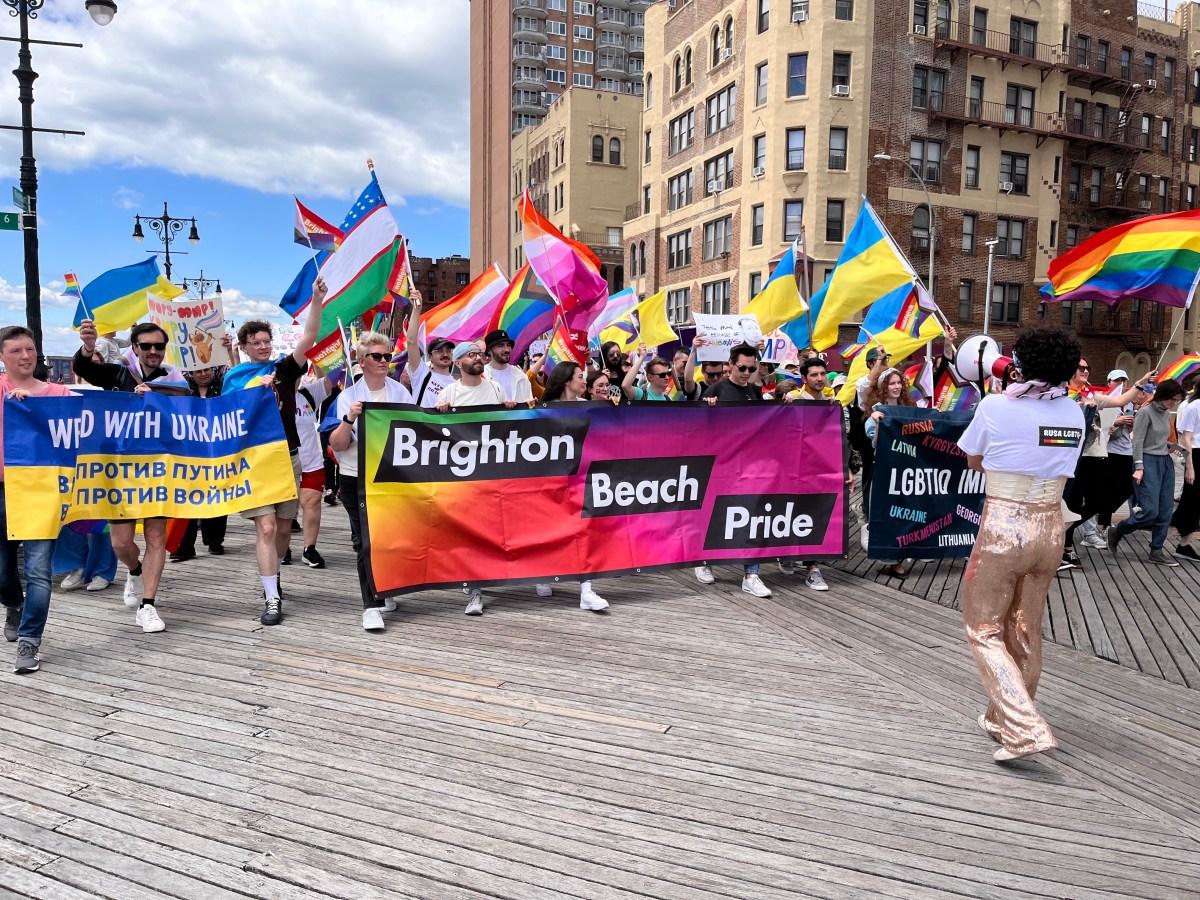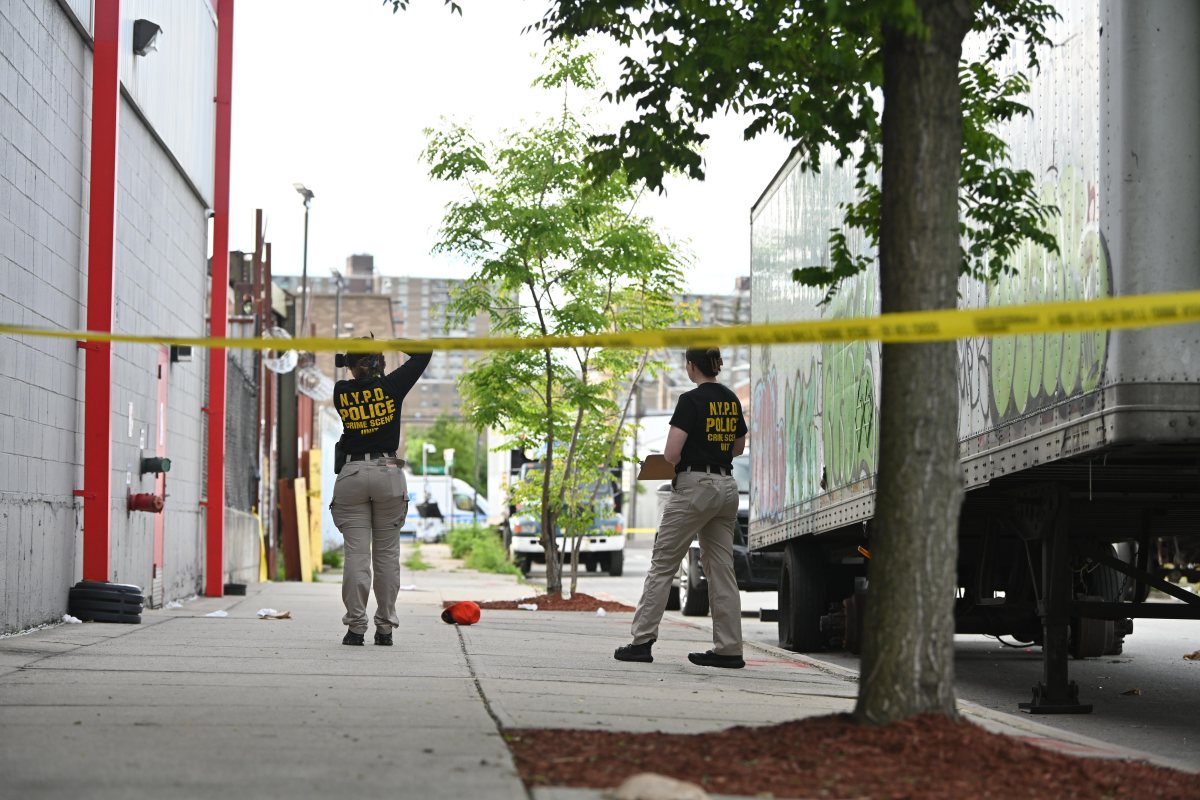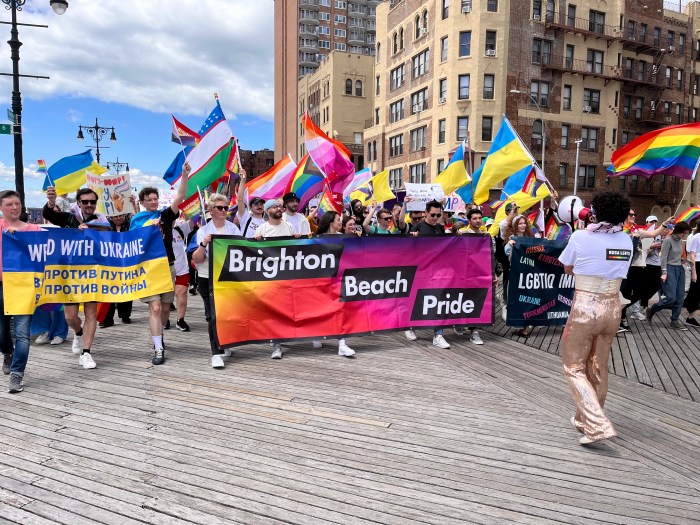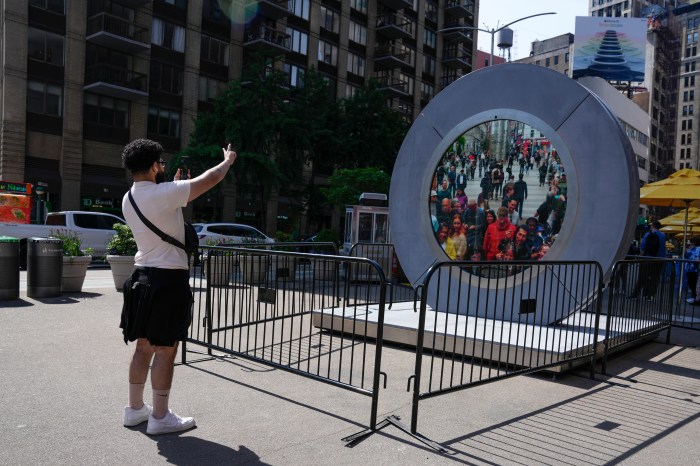Cruising south along Manhattan’s West Side Highway near 125th Street,
drivers could be forgiven for believing that a Fairway grocery store will
soon be opening in Red Hook.
There, hovering near one of the fresh meat and produce chain’s two
New York outposts, a towering billboard with flashing LED lights unambiguously
announces the store’s impending arrival in Brooklyn.
At the end of Red Hook’s Van Brunt Street, however, inside a former
warehouse that overlooks the Erie Basin, signs of a grocery store are
still hard to come by. Instead of the chain’s famous shopper-friendly
meat locker, girds of steel, planks of wood and miles of piping litter
the 200,000-square-foot building.
And while construction workers continue to pound away inside the outpost
at 480-500 Van Brunt St., the chances of Red Hook residents navigating
for Fruit Loops by year’s end appear to be dwindling as quickly as
the neighborhood’s property values are rising.
“We’re coming along well, and we’re shooting for before
the holidays,” said Greg O’Connell, the developer of the project.
“You just never know when you’re working on construction, but
this, it’s pretty much on schedule.”
Both supporters and critics of the project agreed that it would take at
least that long for the store to open.
Bette Stoltz, president of the Southwest Brooklyn Local Development Corporation,
said after recently taking a tour of the site it became clear to her that
Fairway would not be opening terribly soon. But that’s OK, she added.
“Greg has a way of working at the pace he feels comfortable —
but people trust him,” said Stoltz.
“It could go faster,” added Stoltz, a supporter of the project,
“but on the other hand, it was really good to see they were working.”
A spokesman for Fairway did not return calls seeking comment.
“There’s extensive construction,” said Phaedra Thomas,
a Red Hook coordinator of the Southwest Brooklyn Industrial Development
Corporation. “What they’re doing is bringing that building back
to its historical glory. It’s going to be historically correct.”
The Fairway plan, passed by the City Council in January 2002, includes
a commitment to provide 45 units of market-rate housing as well as artists
workspace throughout the top three floors. The grocery store is to occupy
120,000 square feet of the first two floors and basement of the warehouse.
The Fairway plan also has a measure of infamy attached to it. In the summer
of 2002, then-Councilman Angel Rodriguez pleaded guilty to demanding a
bribe of $50,000 in cash and a $1.5 million discount on property from
O’Connell, in exchange for the councilman’s favorable vote on
the supermarket plan.
Rodriguez had publicly opposed the Fairway project, claiming that the
property at 480-500 Van Brunt St. should be used for housing instead,
but behind the scenes he and a childhood buddy were scheming to extort
money and property from O’Connell, a former New York City police
detective who helped federal authorities tape-record the shakedowns.
Rodriguez — an activist councilman who was first elected in 1998
and was a leading candidate for City Council speaker in 2001 — pleaded
guilty to the extortion attempt. In June 2003, a year and a half after
the council passed the Fairway plan, Rodriguez was sentenced to 52 months
in a federal prison.
John McGettrick, co-chair of the Red Hook Civic Association, and an advocate
for more housing in the neighborhood, said delays on the Fairway project
are nothing new.
Purchased by O’Connell in 1992, the waterfront property had been
envisioned at first as housing. But after the City Planning Commission
ruled such a use improper without costly renovations, the space was targeted
for Fairway, despite critics who blasted the project both as a magnet
for traffic and wasteful in a neighborhood that needs more housing.
“I think we would have been far better off with 150 units of residential
housing,” said McGettrick, referring to an initial plan for the site.
Further delays occurred after activists filed a lawsuit against Kings
Harbor View Associates, which is headed by O’Connell, and the city’s
Economic Development Corporation, charging that an environmental analysis
commissioned by the developer downplayed traffic impacts.
O’Connell’s own non-union construction workers broke ground
in 2003. McGettrick claims that the grocery store was slated to open last
September following an agreement made between O’Connell and the City
Council that called for completion of the construction within two years
of the passage of its application.
O’Connell denies that was ever the case.
Meanwhile, the use of non-union construction workers at the site has raised
the ire of union officials. O’Connell said, however, that Fairway
is expected to hire 300 employees at union scale.
“By doing it that way,” O’Connell said of his decision
to hire non-union laborers, “we’re able to bring down rent substantially.”














